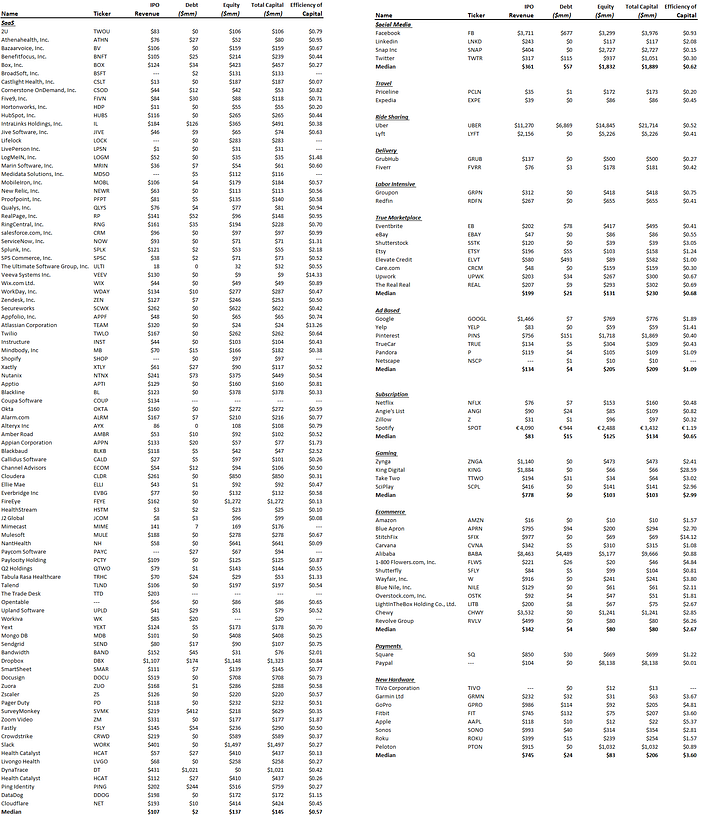Tech company cash efficiency
Cash efficiency is as important as growth, especially when you’re a fast growing, cash burning startup with limited capital. One measure of cash efficiency is revenue/total capital invested. When you’re in early revenue the metric will look abysmal, but as the business grows and realizes economies of scale (generally $2mm+ of revenue), the measure improves. Below we show the cash efficiency of 150 tech companies prior to going public.

The measure varies by industry. For instance, the median is $0.57 of revenue per $1 of investment for SaaS, $0.62 for social media, $0.68 for marketplaces, and $1.09 for ad based businesses.
Repeating customers are critical. Why is it ok to generate less than $1 of revenue per $1 of investment? Because the customer comes back often. For instance, publicly traded SaaS businesses tend to have net revenue retention of 112% on median, meaning their customers return and renew every year, spending more than they did the first year ($0.64 per $1 of revenue in the second year versus $0.57 in the first). Holding that metric steady, 5 years from now, a SaaS business will have earned $3.62 in revenue per $1 of investment. Businesses with stickier customers can afford to be less cash efficient in getting those customers.
Businesses with lower repeat rate need higher cash efficiency. The median cash efficiency is $3.60 for hardware and $2.67 for e-commerce. They’re not necessarily better businesses though, as their customers don’t come back as often (hence they have to be more efficient). For instance, how often do you find yourself changing out your MacBook/laptop? It’s probably not annually, whereas you’re probably paying every year to use software on that laptop.
Watch cash efficiency closely and make sure the metric is always improving. If it is and you’re growing, you may be well on your way to joining the ranks of the companies on the list above.
Visit us at blossomstreetventures.com and email us directly with Series A or B opportunities at . We invest $1mm to $1.5mm in growth rounds, inside rounds, cap table restructurings, note clean outs, and other ‘special situations’ all over the US & Canada.